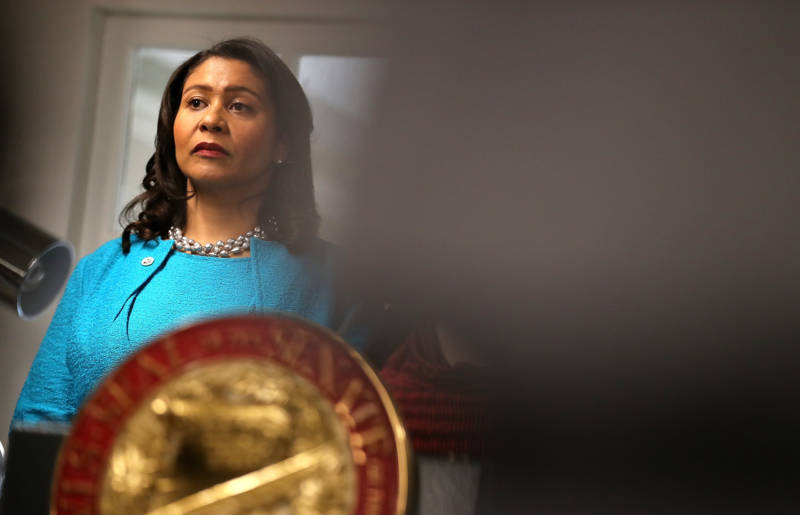San Francisco Mayor London Breed on Wednesday said the Board of Supervisors’ decision to close Juvenile Hall by late 2021 was “not the most responsible thing to do without a real plan of action.”
S.F. Mayor London Breed: Closing Juvenile Hall Without Plan Not 'Most Responsible Thing' to Do

Ten supervisors approved legislation on Tuesday to shutter by December 2021 the 150-bed Twin Peaks facility, which costs the city more than $13 million a year to operate and currently houses fewer than 40 kids.
“To put out there that we’re going to do something that’s going to immediately — possibly — stop young people from even going to any kind of locked facility is just not the most responsible thing to do without a real plan of action,” Breed said.
While authorities in most cases can release juveniles who have been arrested to their parents, “we have also some very serious crimes that occur sometimes with young people and we will need a place for them to go that’s acceptable to the courts,” Breed said.
The legislation calls instead for the creation of a “small rehabilitative non-institutional place of detention” for young offenders who are required by state law to be in a secure facility. It was authored by Supervisors Shamann Walton, Hillary Ronen and Matt Haney.
During Tuesday’s meeting, Haney said the facility’s operations are not in line with the values of today’s San Francisco.
“It does not reflect what we know about how best to support young people and the environments that allow us to do that effectively,” he said. “What we do know is: Kids need treatment, they need support, they need education, they need community-based non-incarceration solutions and they need opportunity — and that we can do better than what we’re doing now.”
Chief Juvenile Probation Officer Allen Nance said the facility, run by San Francisco County’s Juvenile Probation Department, was necessary and that it provides clinical and education services to the young people being held there.
“(Our juvenile hall) is also a place where (youth) are assessed, where they receive treatment, where they are connected to community agencies and where these young people are thriving academically for the period of time that they are there,” he said.
Youth are sent to Juvenile Hall for misdemeanors, robbery and aggravated assault, among other things. He has previously said closing the facility without a clear plan for its replacement would put young offenders in the criminal justice system at risk.
Patricia Lee, juvenile unit manager in the San Francisco Public Defender’s Office, welcomed the decision to close the facility, saying such institutions were “not rehabilitative.”
“The racial disparities are stark, and the confines of juvenile halls have a harmful effect on (a) youth’s mental and physical health as well as their educational outcomes, not only in San Francisco but throughout the nation,” she said in a statement. “It’s time to recognize the developmental immaturity of youth and guide them to become successful and contributing members of our communities.”
The legislation was prompted by a San Francisco Chronicle series showing that violent felony juvenile arrest rates in the city had declined by 87% since 1990, while spending on youth corrections has gone up.
The city spends an average of $279,500 per youth to run an institution that is serving fewer than 50 kids on a given day, according to city officials. A decade ago, the facility served an average of 123 youths per day, while the cost was less than half the current cost — about $123,400 per individual in 2009.
By 2013, the average daily population at Juvenile Hall had dropped to 76, and last year it declined further, to 44. African American and Hispanic youths have typically made up the vast majority of detainees at the facility, Nance said.
Breed said low numbers of youths being in Juvenile Hall were a positive sign. While 700 people are in the juvenile justice system in San Francisco, few are held in the facility, she said.
“What that tells you is that a lot of what we’re doing is working,” she said, citing a panel she formed in March to make recommendations for juvenile justice reforms.
KQED’s Ted Goldberg and Marisa Lagos contributed to this report.
